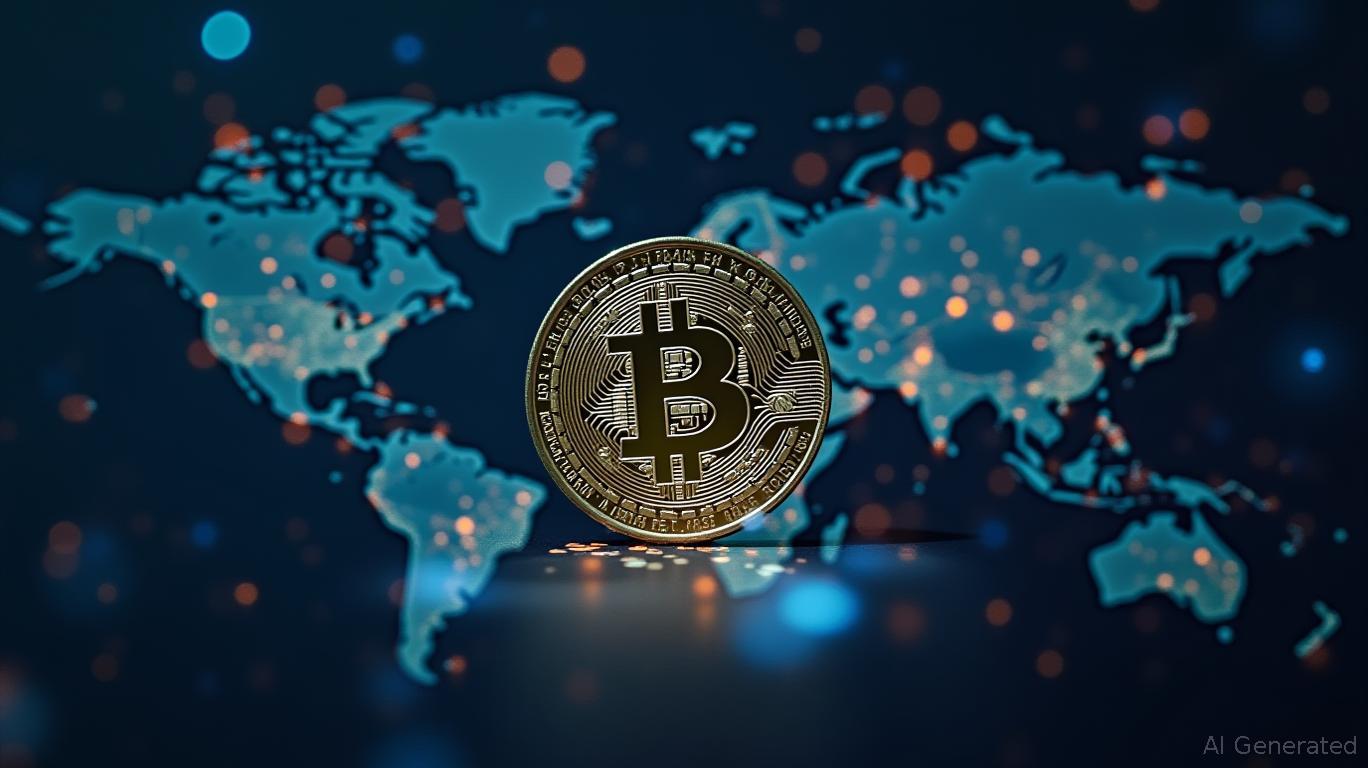Crypto Fraud Rises While International Authorities Strain to Catch Up
- Singapore and Malaysia intensify cross-border crackdowns on crypto scams, seizing $150M assets linked to Cambodian syndicates and pursuing regional fugitives. - ZachXBT ranks Nigeria, India, Canada, UK, and Russia as top jurisdictions for crypto fraud recovery challenges due to legal delays and frozen assets. - Meta deploys AI tools to combat WhatsApp/Messenger scams, aligning with Singapore's facial recognition mandates under the Online Criminal Harms Act. - Global fraud surges include $500M telecom loa
Authorities in Singapore and Malaysia have ramped up their crackdown on cross-border cryptocurrency scam operations, as global law enforcement faces rising fraud-related losses. Singaporean police confiscated assets exceeding S$150 million tied to a Cambodian fraud ring, focusing on Prince Group chairman Chen Zhi and his network in a large-scale operation. The investigation, which involved freezing six properties and several financial accounts, highlights the vast reach of international scams in Southeast Asia, according to an
Blockchain analyst ZachXBT has identified Nigeria, India, Canada, the UK, and Russia as the most difficult places for crypto scam victims to seek justice, according to

Meta has rolled out new features to fight scams on WhatsApp and Messenger, such as warnings during screen sharing and AI-driven chat monitoring. These updates are designed to prevent scammers from pretending to be bank staff or government officials to steal sensitive data, The Straits Times reported. The changes come after Singapore’s Online Criminal Harms Act, which requires stronger facial recognition and prioritizes reports of impersonation scams, as noted by The Straits Times.
The global problem is not limited to Southeast Asia. In the United States, Bankim Brahmbhatt, a telecom executive of Indian descent, faces allegations of masterminding a $500 million loan scam by fabricating accounts receivable, Gulf News reported. BlackRock’s private credit division, HPS Investment Partners, is working to recover money moved to offshore accounts in India and Mauritius. Meanwhile, Canada’s Immigration Department has suggested mass visa cancellations for Indian and Bangladeshi nationals due to increasing fraud, drawing criticism from civil rights advocates, according to Business Standard.
Crypto trading platforms are also under the microscope. A major hack on Halloween targeted a protocol with $451 million in total value locked (TVL), contributing to a record $2.17 billion in crypto thefts in 2025, Yahoo Finance reported. KuCoin, on the other hand, has set itself apart as a security frontrunner by implementing verifiable transparency standards, including the Cryptocurrency Security Standard (CCSS), as detailed in a
With scams becoming more sophisticated, global collaboration is increasingly vital. South Korea and China have recently entered into agreements to fight online scams and voice phishing during the APEC summit, Yonhap reported. Still, as losses grow and legal systems struggle to keep up, victims in places like Nigeria and Canada are more frequently resorting to self-help or giving up on recovery, ZachXBT cautioned.
Disclaimer: The content of this article solely reflects the author's opinion and does not represent the platform in any capacity. This article is not intended to serve as a reference for making investment decisions.
You may also like
Blackout period stock transactions reveal shortcomings in the Federal Reserve's ethics oversight
- Former Fed Governor Adriana Kugler violated ethics rules by trading stocks during FOMC blackout periods in 2024, including a $100k–$250k Apple purchase. - Her spouse executed undisclosed trades in Cava Group and Southwest Airlines shares around restricted windows, breaching 2022 Fed policies banning individual stock holdings. - Kugler resigned in August 2024 after seeking denied waivers, leaving her seat vacant until replaced by Trump adviser Stephen Miran, highlighting partisan governance tensions. - OG

Ethereum Updates Today: The Supercycle Potential and Skeptics' Concerns
- Tom Lee argues Ethereum is entering a Bitcoin-like "supercycle," citing historical volatility as a path to mass adoption despite recent market turbulence. - Critics question Ethereum's unique value proposition, challenging its dominance against rivals and traditional finance integration. - Institutional adoption grows, with Harvard investing $443M in Bitcoin ETFs and MicroStrategy forecasting Bitcoin's $13T market cap by 2035. - Bitcoin's recent volatility contrasts with Ethereum's expanding Layer-2 netw

ZK Technology Experiences Price Spike: Advances in Blockchain Scalability and Signs of Institutional Embrace
- Zero-Knowledge (ZK) technology's valuation surged in 2025 due to blockchain scalability breakthroughs and institutional adoption, with ZK rollups achieving 15,000 TPS and $3.5B total value locked. - Platforms like ZKsync and StarkNet enabled real-world applications (tokenized assets, AI contracts) while Deutsche Bank and Sony adopted ZK for confidential settlements and digital rights management. - Ethereum's zkEVM integration and regulatory clarity via U.S. acts accelerated institutional trust, with proj

Vitalik Buterin Backs ZKsync: Igniting Ethereum Layer 2 Innovation and Ushering in the Next Era of DeFi
- Vitalik Buterin's endorsement of ZKsync's Atlas upgrade accelerates Ethereum's ZK-based scalability strategy, positioning ZKsync as a key DeFi infrastructure player. - The upgrade achieves 15,000+ TPS with near-zero fees via ZK Stack, enabling 30% stablecoin dominance and bridging Ethereum's L1-L2 liquidity gaps. - Institutional adoption surges as ZK token gains 50% post-endorsement, supported by $15B in ZK-related DeFi inflows and StarkNet's TVL tripling in Q4 2025. - Upcoming Fusaka upgrades (30,000 TP
